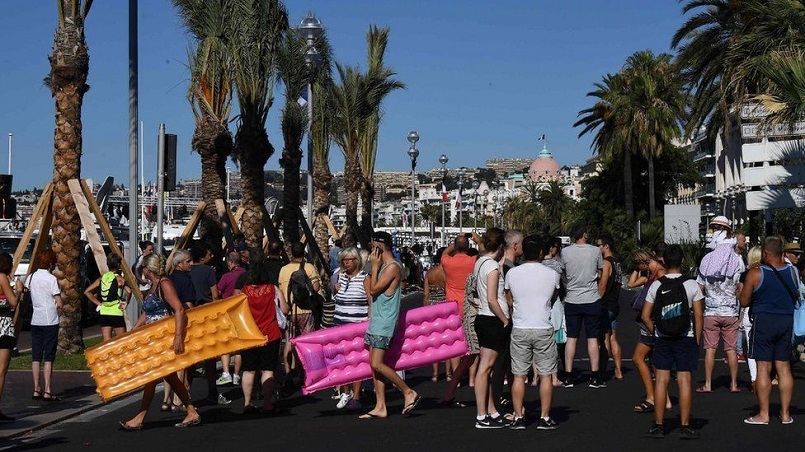
If you are under 25 you probably don't remember a time without terrorism.
The 9/11 attacks in the US happened when you were under 10. The London bombings took place when you were a teenager or younger.
There have been bombs and shootings around the world regularly ever since, from the US to Tunisia, Spain to Belgium, Baghdad to Paris.
And because of social media, when something terrible happens to other people - we all know about it, fast.
So are we getting numb? Have we got "fear fatigue"?
Or is it that we're getting better at defiance?
"It shouldn't feel normal but it feels normal," says 21-year-old Aaron in London.
He tells Newsbeat: "I woke up and gone to the train station and the first thing I've seen is police officers, so now I'm thinking London is on high alert.
"All I was thinking when I see stuff like this is 'where's the next place?'"
Becky, 24, says: "It makes me nervous but you can't stop living your life because of it.
"You just become desensitised to it."
"It doesn't come as a surprise any more," adds Martin, 24.
"News like this happens so often that you see this one and forget about the last time.
"A few days after, no-one will be talking about this - it'll be brushed under the carpet."
Some people we spoke to have resigned themselves to an "inevitable" attack in the UK.
"It's nice to see England has got police and security and we've upped our game but it does seem like it's a case of 'when it happens'," says 22-year-old Danusia.
Have we got 'terror fatigue'?
We wanted to find out more about this sense of becoming "desensitised" to someone else's tragedy.
"The more you're exposed to something, you do develop a thicker skin, that's human nature," says psychotherapist Hilda Burke.
"Most of us have empathy but we can't spend all our emotional energy [on terrorism] because we need to retain something for ourselves, because of the challenges we're facing in our own personal lives."
As for the people going to the beach in Nice, Burke doesn't think they're being uncaring.
"If you were in Nice for your holidays and knew no-one affected, what could you do?" she says.
"There's a sense of 'How can I help? I'm not a medic, a therapist or a counsellor, so I'm going to get on with my holiday as best I can'."
Reactions on social media to terrorism can also lose their impact.
What about hashtags, like #PrayforNice?
"[Hashtags are] starting to be formulaic and don't have the impact that it did originally with Je Suis Charlie," says Burke.
"It would be interesting to speak to victims and see whether [hashtags] give them comfort or solace - in that other people are thinking about them."
